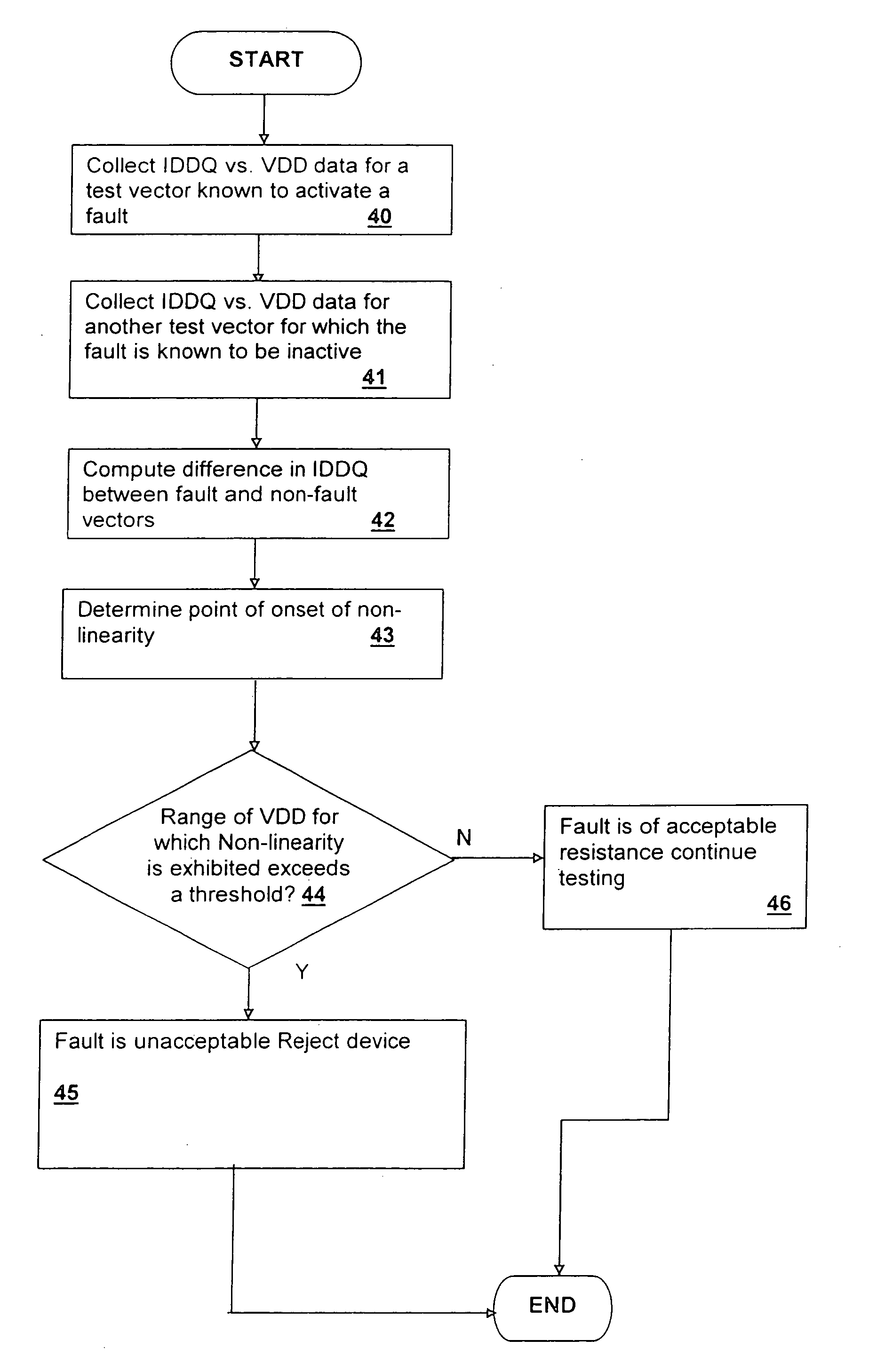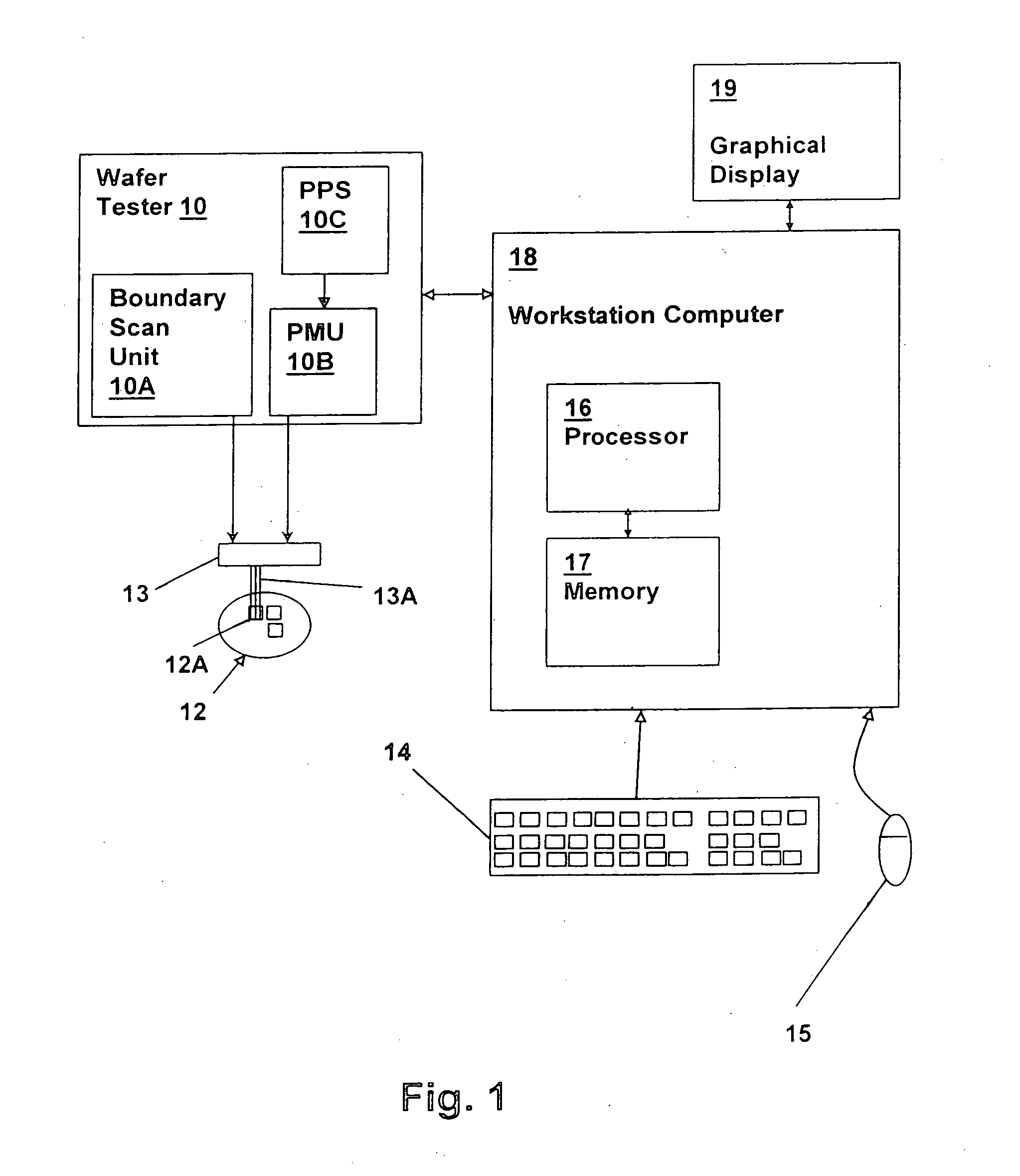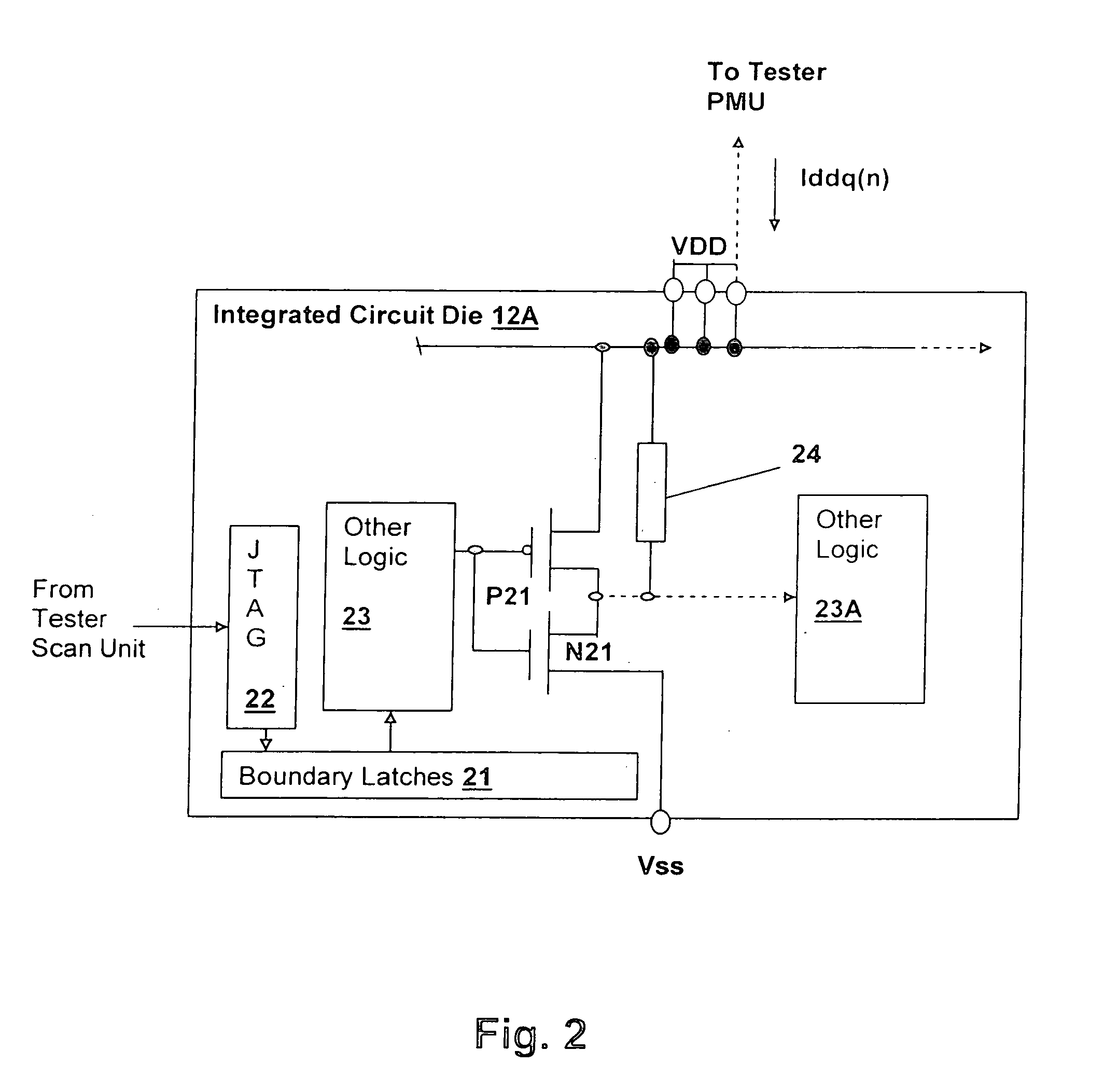Method and system for defect evaluation using quiescent power plane current (IDDQ) voltage linearity
a power plane current and defect evaluation technology, applied in the field of integrated circuit test systems, can solve problems such as general inacceptability of defects, and achieve the effect of reducing the probability of defects
- Summary
- Abstract
- Description
- Claims
- Application Information
AI Technical Summary
Benefits of technology
Problems solved by technology
Method used
Image
Examples
Embodiment Construction
[0020]Referring to the figures, and particularly to FIG. 1, a VLSI wafer test system, in which methods according to an embodiment of the present invention are performed, is depicted. A wafer tester 10 includes a boundary scan unit 10A for providing stimulus to a die 12A on a wafer under test 12, via a probe head 13 having electrical test connections 13A to die 12A. Wafer tester 10 also includes a parametric measurement unit (PMU) 10B, also coupled to die 12A via probe head 13 via electrical test connections 13A that can measure analog parameters such as the power plane current (IDDQ) as measured in accordance with the methods of the present invention. Wafer tester 10 further includes a programmable power supply (PPS) 10C that provides for programming multiple differing power plane voltages (VDDS) and is coupled to PMU 10B so that the power supply current supplied by PPS 10C can be measured by PMU 10B. IDDQ measurements are performed over a series of test vectors stimulated by bounda...
PUM
 Login to View More
Login to View More Abstract
Description
Claims
Application Information
 Login to View More
Login to View More - R&D
- Intellectual Property
- Life Sciences
- Materials
- Tech Scout
- Unparalleled Data Quality
- Higher Quality Content
- 60% Fewer Hallucinations
Browse by: Latest US Patents, China's latest patents, Technical Efficacy Thesaurus, Application Domain, Technology Topic, Popular Technical Reports.
© 2025 PatSnap. All rights reserved.Legal|Privacy policy|Modern Slavery Act Transparency Statement|Sitemap|About US| Contact US: help@patsnap.com



